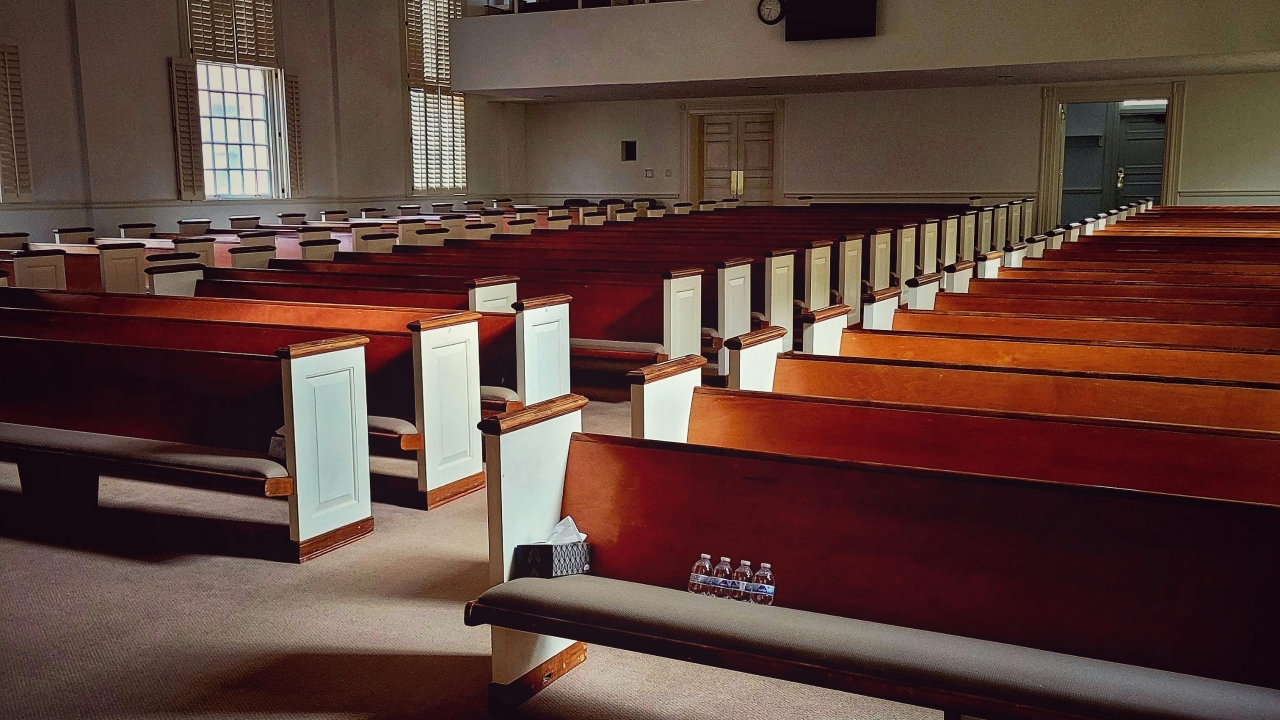
How Postmillennialism Destroyed My Church Plant
In January of last year I, along with the two other leaders of our church plant, made the decision to close it down. This was an extraordinarily difficult decision for multiple reasons, not the least of which was that planting this church in Los Angeles was Plan A and I had no Plan B. It would be a lack of faith after all to have a Plan B right? In any case, among the reasons we decided to close down our church, I would name Postmillennialism as perhaps the most significant factor that led to our final decision.
Let me explain. We planted our church with a fundamentally pessimistic view of gospel advance throughout human history. By this, I mean that we believed that while the gospel will change many lives, most people in human history will reject itl and go to hell, and ultimately Christ will return to a world that is in chaos where the saints of God are a tiny faithful minority awaiting rescue. By that logic, the best we can do as the Church is to remain a faithful witness until the time of his return. These eschatological assumptions have a tendency to create what I’m calling “Kamikaze Christianity.”
A Kamikaze Church Plant
My core team and I spent six years trying to plant a church in one of the most difficult areas, in one of the most difficult cities, in one of the most difficult states in which to plant a church, Venice, Los Angeles. We read Keller, we read Chester and we were ready to make the sacrifices necessary to be ‘in the city’ and ‘for the city’. Thus we were sent out, three 24-year-old church planters with our little core team, with the full support of multiple sending churches and sending agencies.
Not a single person in our church owned a home in the city, nor were there any prospects of ever doing so. The young singles who had committed to the church plant struggled for years to find a godly spouse (the dating pool in LA for Christian marriage material is sparse, to say the least). We had young couples putting off having children for financial reasons, and other families who dreamed of starting Christian businesses but knew they couldn’t do it in the city in which we had planted. But this was the price we had been encouraged to pay..
Your Missiology Is Shaped By Your Eschatology
And then... in the span of about 6 months, as we were preaching through the book of Daniel, all three of us young pastors became convinced of Postmillennialism. At first, it was exhilarating! “Wow! This means that heaven is going to be way more full than Hell! It means Christ actually intends for us to successfully disciple the nations!”I liken the experience to watching food coloring drop into a glass of water. At first, you’re just thinking about how cool that little droplet looks as it hits the surface of the water, but then, as it mixes in, it changes the color of everything. We had no idea that adopting an optimistic eschatology would mean totally reshaping our missiology.
After we got over our initial excitement about the theological implications of Postmillennialism we began to realize that there are very practical missiological implications as well. If you believe you’re going to lose the war, a Kamikaze mission can make sense.We might not win, but we can sacrifice ourselves to make a dent in the evergrowing kingdom of chaos and darkness right now. But if you believe that you are actually going to win the war, all of a sudden your tactics change dramatically.
(NB - When I say “lose the war” I mean this in a very particular sense. Other eschatological models of course believe that Christ wins in the end. We can all agree on that. But Postmillennialism posits that the Church will successfully disciple the nations in history before the return of Christ. Thus, other eschatologies are pessimistic with regard to how successful the Church will be in her mission to disciple the nations.)
Rethinking The Great Commission
If you believe that Christ and his church will successfully disciple the nations, you start to ask completely different questions. Instead of “How can I be a faithful witness right now?” you start asking “How can I be a faithful witness right now and set our great-grandchildren up for even greater kingdom success? All of a sudden the fact that my parishioners were putting off getting married, having children and starting Christian businesses, all to help start this church plant in a place where virtually none of them could ever afford to live, revealed itself to be totally reckless and irresponsible. I was calling people to put off having dominion, being fruitful, and multiplying, all so that we could plant a church that, statistically, would likely not last 20 years.
As I pondered these things, trying to decide whether or not to close down my church plant, the passage that kept coming to mind was Samuel 15:22 "Behold, to obey is better than sacrifice." . I realized that I had unwittingly called the people of my church to sacrifice the Dominion Mandate on the altar of a very narrow understanding of The Great Commission. I used to believe that Christ had sent us on an ultimately doomed quest, in which most people would ultimately reject Him, and in which the nations would go from bad to worse. “Go therefore and give discipling the nations the ole college try.”
But I no longer hold that perspective. I now believe that Jesus has sent us out to disciple the nations with full expectation that the nations would truly be discipled, and that we as God’s people should work and plan accordingly. Postmillennialism may require some of us to completely rethink our Great Commission tactics, and it did for me. Our Los Angeles Kamikaze Church plant no longer made any sense. And so, ironically, it was this great postmillennial hope that led to the destruction of our church plant.
How We Win
I am aware that many who read this will not hold to my eschatological position, and Clear Truth does not endorse any particular perspective in this regard. But allow me to give a thought that I believe will apply to you regardless of your end-times theology: If we are going to successfully disciple our nation we have got to start thinking long term. We must think generationally. We must dispense with kamikaze church planting and actually plan to win. We must build antifragile Christian communities that are committed to Kingdom advancement, fully convinced that the gates of hell will not prevail against the church! I have since moved to the Nashville area to join a Church with these glorious convictions. It was one of the best decisions of my life.
1 Cor. 15:25, “For he must reign until he has put all his enemies under his feet.”


